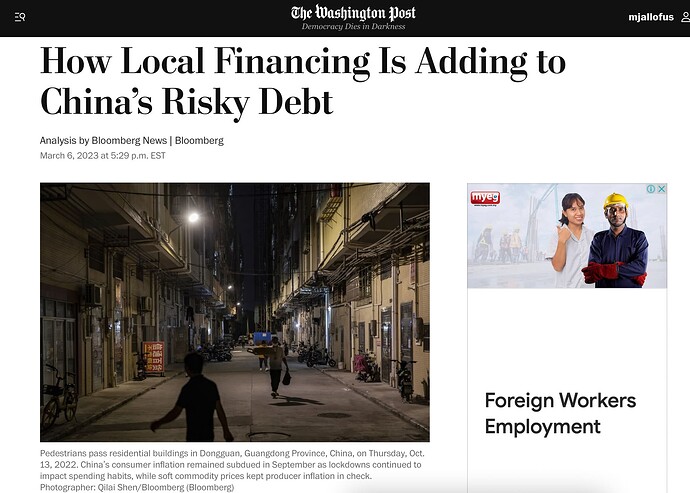-
中国的地方政府融资工具(LGFVs)是为了资助市政基础设施而设立的,但其债务负担已经膨胀到7万亿美元之多,这种负债越来越难以维持。
-
LGFVs成为中国财政的一个薄弱环节,截至2022年底,中国地方政府的债务总和超过了5万亿美元。
-
绝大多数LGFV投资者是本地人,因为外国人认为LGFV是不透明的,难以分析。
-
大流行病和全国性的住房不景气使大多数地区政府面临严重的资金紧缩,未偿还的借款超过收入的120%。
-
人们担心的是,中国的地方政府融资机构高度依赖再融资和地方政府的支持来维持运转,这表明存在一连串的违约风险。
-
虽然没有任何地方政府融资机构在公共债券上违约,但地方政府融资机构发债管道的干涸加剧了人们对其中一些机构可能发现更难补充资金的担忧。
-
中央政府不愿意完全救助地方政府基金部门,因为它正试图阻止不计后果的冒险行为,因为人们认为当事情发生时,国家总会出手相救。
-
China’s local government financing vehicles (LGFVs) were created to fund municipal infrastructure, but their debt load has ballooned to as much as $7 trillion, a liability that’s becoming harder to sustain.
-
LGFVs emerged as a weak spot in China’s finances, and their combined debt of Chinese local governments topped $5 trillion as of the end of 2022.
-
The overwhelming majority of LGFV investors are local, as foreigners consider LGFVs to be opaque and hard to analyze.
-
The pandemic and a national housing slump have left the majority of regional governments facing a serious funding squeeze, with outstanding borrowing exceeding 120% of income.
-
Underlying concerns are the knowledge that China’s LGFVs are highly reliant on refinancing and local government support to stay afloat, signaling the risk of a cascade of defaults.
-
While no LGFV has defaulted on public bonds, a drying pipeline of LGFV debt issuance is fueling concerns that some of them might find it harder to replenish funds.
-
The central government will be reluctant to bail out the LGFV sector entirely, as it’s trying to discourage reckless risk-taking driven by the assumption that the state will always come to the rescue when things go wrong.
1 Like
